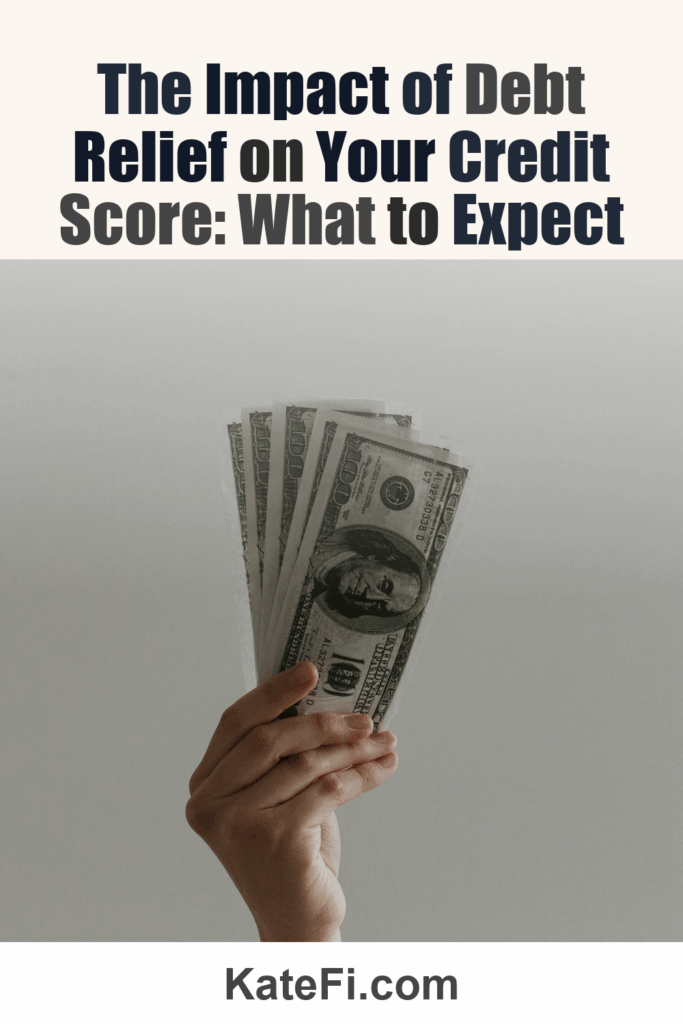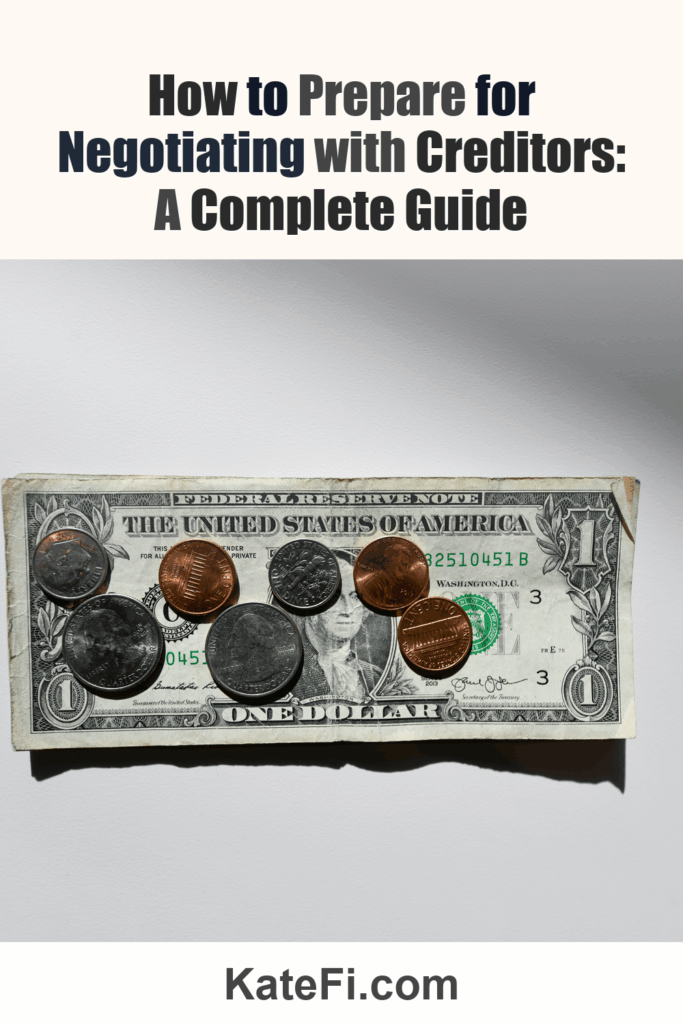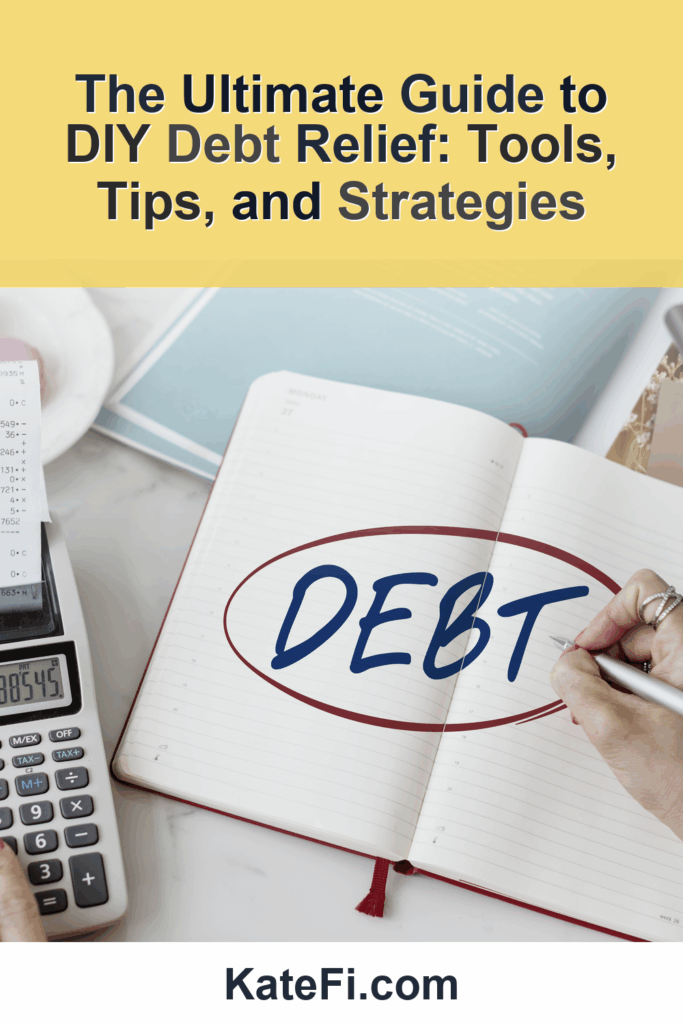7 Signs It’s Time to Get Professional Debt Help and What to Expect
In a world of rising inflation and increasing household debt, many Americans find themselves grappling with financial uncertainty. The Federal Reserve recently indicated that household debt has surged, with average credit card balances reaching their highest levels in over a decade. The pressure to manage bills and debt effectively has never been greater. If you’re feeling overwhelmed by financial obligations, it may be time to seek professional debt help.
Love our content? Show your support by following us — pretty please!🥺
FOLLOW ON PINTEREST
Hi! I’m Kate, the face behind KateFi.com—a blog all about making life easier and more affordable.
Let’s explore the telltale signs that indicate it’s time to reach out for assistance and what you can expect when you do.
1. You’re Struggling to Make Minimum Payments
Lower Your Unsecured Debt
If you have $5,000+ in credit card or personal loan debt, a free consult can review options like settlement or hardship plans.
- One-on-one call to review your debts and goals
- See potential monthly payment reductions
- No obligation to enroll
Not available in IL, KS, OR, TN, UT, WV.
One of the most alarming signs that you need professional help is the inability to meet your minimum monthly payments. This not only impacts your credit score but can also lead to late fees, increased interest rates, and potential collections. If you find yourself choosing between paying bills or purchasing groceries, it’s time to consider reaching out for a consultation.
✅ See If You Qualify for Debt Relief
2. You’re Using Credit to Pay for Necessities
If your credit card is the go-to solution for paying for essentials like groceries or gas, it’s a clear sign of financial distress. Relying on credit cards for daily expenses can trap you in a cycle of debt that’s hard to escape. This is where professional debt help comes into play, offering tailored strategies to break this cycle.
Gather your recent credit card statements and track how much you’re charging each month. A financial expert can help you assess whether debt consolidation, negotiation, or another debt relief strategy is appropriate for your situation.
3. You’re Avoiding Debt Collectors
What You’ll Learn on the Call
- Estimated timeline and monthly payment range
- How credit may be affected in the short term
- What documents to gather to move faster
Not available in IL, KS, OR, TN, UT, WV.
Ignoring calls from debt collectors or letters demanding payment is a common reaction among those in debt. However, avoidance only exacerbates the problem. Engaging with a debt relief professional can provide clarity and options that might include negotiation for lower payments or settlements.
If you’re not sure how to handle debt collectors, here’s a quick script:
- “Hello, I am currently reviewing my financial situation and would like to discuss payment options. Can you please provide information on how we can resolve this?”
This simple approach can open a dialogue that may lead to a manageable solution.
4. Your Savings Are Dwindling
Increased household expenses often lead to the depletion of savings. If you find that your emergency fund is becoming non-existent or you can’t save for future expenses, it’s a red flag. Not having savings puts you at risk for even more debt when unexpected costs arise.
Professional debt assistance can help create a budget that not only addresses your current debt but also encourages saving for future needs. With a reset on your budget, you can work toward a sustainable financial plan.
5. You’re Experiencing Increased Stress and Anxiety
Understand pros/cons of settlement vs consolidation vs DMP for your exact mix of debts.
Not available in IL, KS, OR, TN, UT, WV.
The mental toll of financial stress can be significant. If thoughts of debt are constantly weighing on your mind, affecting your quality of life, it’s time to take action. Professional debt help is not only about numbers; it’s also about peace of mind.
Consider this: A dedicated advisor can help map out a realistic plan, reducing anxiety around debt and helping you regain control.
6. Your Credit Score Is Suffering
A credit score is crucial for your financial health. If you’ve noticed a dip in your score due to missed payments or high utilization ratios, seeking professional assistance could help restore your creditworthiness. Many debt relief programs offer guidance on rebuilding your credit after working through your debt challenges.
✅ See If You Qualify for Debt Relief
7. You Feel Overwhelmed and Confused by Your Options
The world of debt relief can be confusing, with multiple options like debt consolidation, negotiation, or bankruptcy. If you’re unsure of which path to take, professional help can provide clarity.
A debt consultant will review your financial documents and guide you through the best solutions tailored to your unique situation. They will help you gather necessary documents for a faster review, such as:
- Pay stubs or proof of income
- Monthly bills (utilities, loans, credit cards)
- Bank statements
- Tax returns
Having these documents ready can speed up your consultation and lead to more effective strategies for debt relief.
What to Expect from Professional Debt Help
When you decide to seek professional assistance, here’s what you can typically expect:
- Free Consultation: Most reputable debt relief services begin with a free consultation where you can discuss your financial situation and explore options without any obligations.
- Personalized Plan: After reviewing your financial health, you will receive a customized debt relief plan that suits your needs. This plan may include debt consolidation, negotiation strategies, or budgeting techniques.
- Ongoing Support: Your journey to financial freedom doesn’t end with a plan. You’ll receive ongoing support and guidance to help you stick to your budget reset and stay on track.
- Credit Impact Discussion: Be sure to have a candid discussion about how different debt relief options will impact your credit. While some strategies may temporarily lower your score, they can also pave the way for a healthier financial future.
Debt Relief: A Budget Reset That Actually Sticks
Resetting your budget is not just about cutting expenses but implementing lasting changes that foster a healthier financial life. Here are practical tips to make your budget reset stick:
| Strategy | Description | Expected Outcome |
|---|---|---|
| Track Your Spending | Use budgeting apps or spreadsheets | Identify unnecessary expenses |
| Automate Payments | Set up automatic payments for bills | Avoid missed payments |
| Create a Savings Plan | Allocate a portion of income to savings | Build an emergency fund |
| Review Monthly | Assess your budget regularly | Adjust spending as needed |
By creating a sustainable budget that considers your debt relief plan, you can make strides towards a debt-free life.
✅ See If You Qualify for Debt Relief
Important: This content is for education only—not legal, tax, or financial advice. Results and eligible programs vary by situation and state. Fees apply if you enroll and complete a program. Debt relief can affect credit; missed payments may lead to collections/lawsuits. Not available in IL, KS, OR, TN, UT, WV.
Taking the step to get professional debt help is often the first step toward a more stable financial future. If you recognize these signs in your own financial life, don’t hesitate to take action and explore your options. Financial relief is possible, and you don’t have to navigate this journey alone. Reach out today to get started!






















